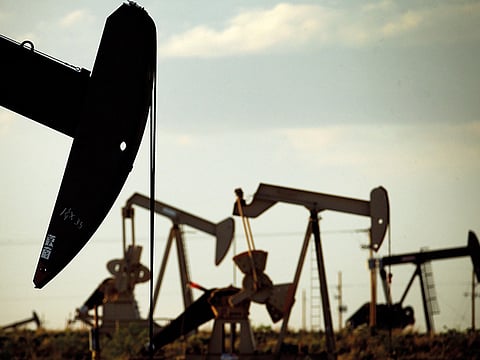Opec cuts to support oil prices
Brent to claw back towards $70 per barrel but won’t touch $80, analysts say

Abu Dhabi: The decision of Opec and its allies to cut production by 1.2 million barrels per day (bpd) from January 2019 is expected to give solid support to oil prices, but the cuts won’t be enough to send oil prices towards $80 (Dh294) per barrel, analysts said.
Global benchmark Brent rose by more than 5 per cent following the output cut decision by Opec (Organisation of the Petroleum Exporting Countries) and its allies like Russia, in Vienna on Friday. It is currently trading at about $62 per barrel with West Texas Intermediate (WTI) at $52.61 per barrel.
“The Opec plus (allies like Russia) deal will help to stabilise oil prices in the near term, helping to put a floor under the 30 per cent decline they’ve experienced since hitting peak levels in October. But the cuts don’t go all the way in reducing a market surplus that will emerge in 2019,” Edward Bell, commodities analyst at Emirates NBD Research, told Gulf News.
“By cutting just 1.2 million bpd and from October’s already elevated levels, the cuts won’t be enough to send prices back up to $80 per barrel or above.”
Saudi Arabia, Russia and other countries produced record oil production in October, anticipating supply shortages due to the reintroduction of US sanctions on Iran, the third biggest oil producer within Opec. Saudi Arabia produced 10.65 million bpd in October compared to 10 million bpd in May, Bell said.
“The continued removal of Iranian barrels over the coming months, combined with US production growth potentially slowing in response to the recent collapse, could see Brent crude make its way back towards $70 per barrel during the coming weeks,” Ole Hansen, head of commodity strategy at Saxo Bank said in a note.
Just like in 2014 when prices collapsed, it’s the continued impact of surging US production that is putting pressure on Opec and Russia, he said.
“During the past year, production has surged by more than 2 million bpd last week. This resulted in the US becoming a net exporter of crude oil and products for the first time in 75 years.”
As per the agreement reached in Vienna on Friday, Opec member countries would be cutting output by 800,000 bpd where as non-Opec countries like Russia will contribute with a cut of 400,000 bpd. The deal is valid for six months and will be reviewed in April.



